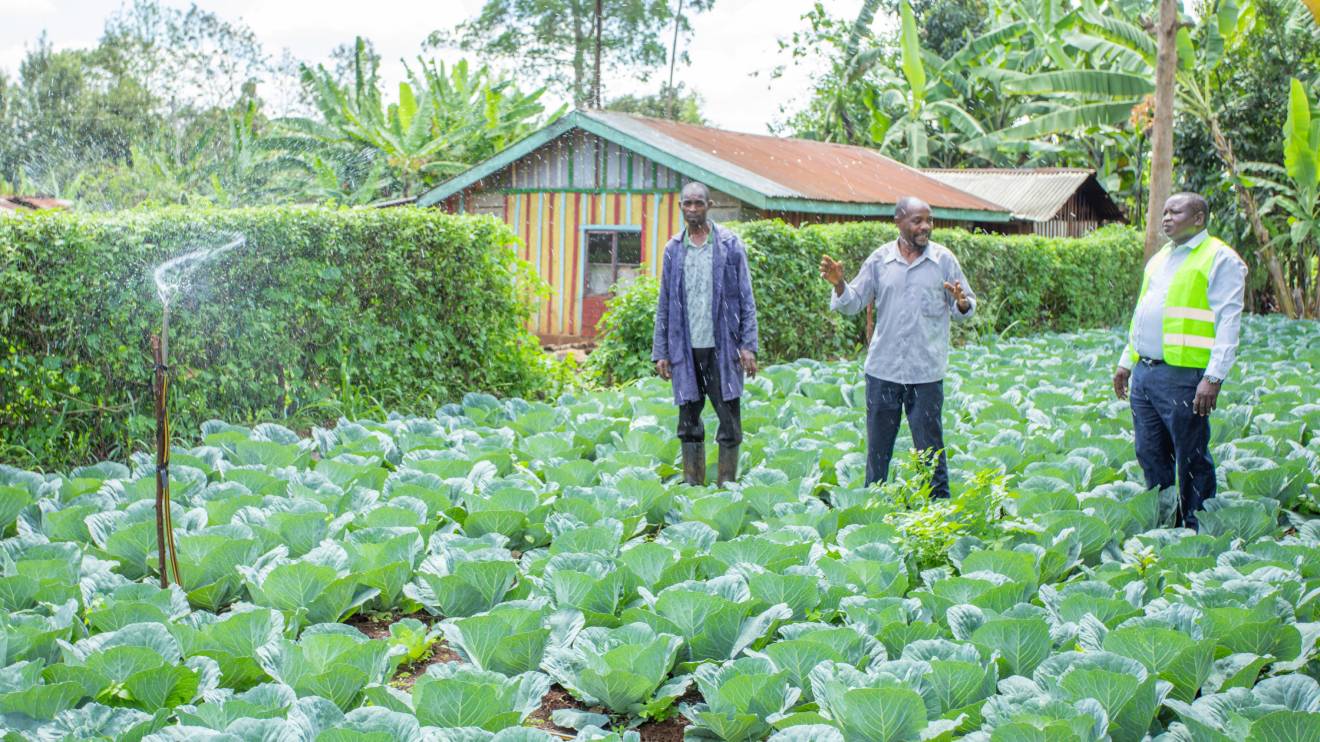A recent study conducted by Infotrak has shed light on the economic hardships faced by a significant portion of the Kenyan population.
The study indicates that a staggering 73 per cent of Kenyans find themselves either in severe financial distress or struggling to make ends meet.
Specifically, 18 per cent admit to being in severe financial distress, while 55 per cent are grappling to make ends meet and a meagre 5 per cent report comfortably managing their financial situations.
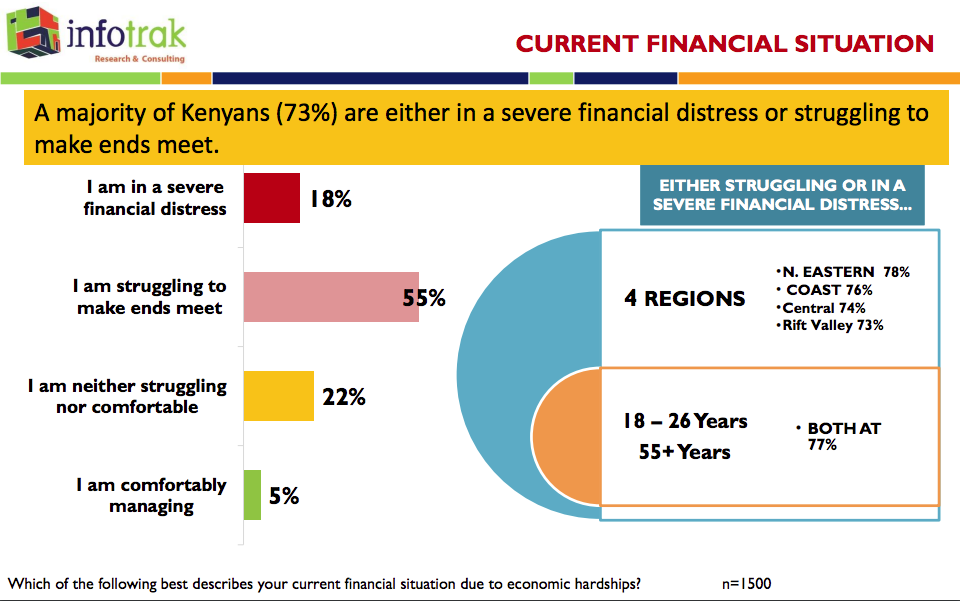
The repercussions of these economic hardships have been far-reaching and are not confined to financial aspects alone.
Read More
The study reveals that 48 per cent of respondents have experienced increased stress and anxiety, 32 per cent faced strain on personal relationships, 21 per cent encountered physical health issues, and 18 per cent reported mental health effects.
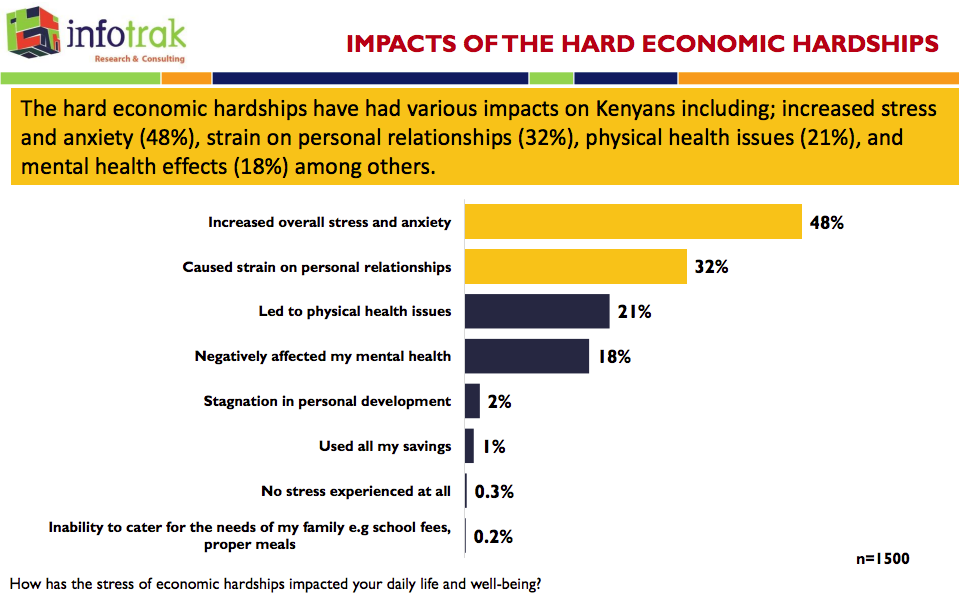
Looking ahead, the study also gauged the outlook of Kenyans for 2024, with concerning results.
A majority, 67 per cent, anticipate an increase in school fees, while 56 per cent fear a surge in unemployment.
Additionally, 52 per cent foresee a rise in the Dollar Exchange rate against the Kenyan Shilling, and 51 per cent anticipate an increase in the cost of energy.
When asked about coping strategies, Kenyans revealed a variety of approaches.
Forty-five per cent are resorting to getting a side hustle, while 41 per cent are cutting back on non-essential expenditure.
Other strategies include seeking additional employment or income sources (45 per cent), taking out loans (18 per cent), utilizing community resources like food banks (16 per cent), and borrowing money from friends or family (15 per cent).
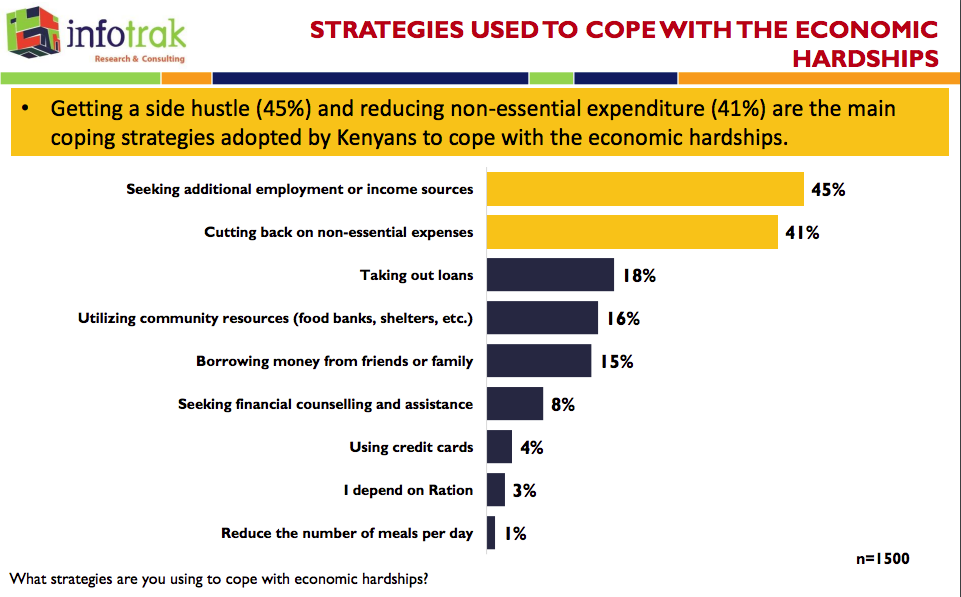
The comprehensive survey, conducted through Computer Assisted Telephone Interviews (CATI), engaged 1500 respondents, aiming to represent the universe of adult Kenyans aged 18 years and above.
The sampling frame, designed using Population Proportionate to Size (PPS) guided by the 2019 Census, covered all 47 counties and 8 regions of Kenya, ensuring national representativeness.
In light of these findings, it is evident that a significant proportion of Kenyans are grappling with severe economic challenges, with potentially far-reaching consequences on their well-being and the overall socio-economic landscape.

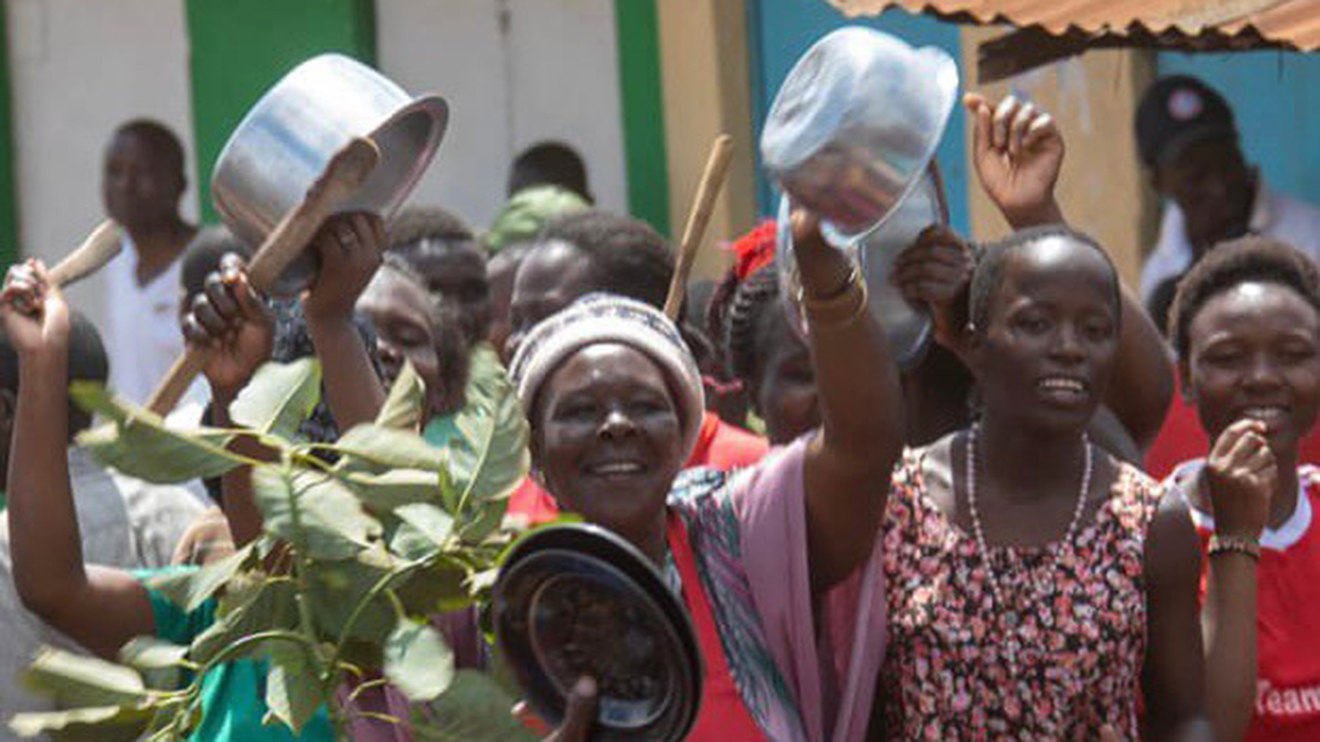
 (1)-1730745141.jpg)
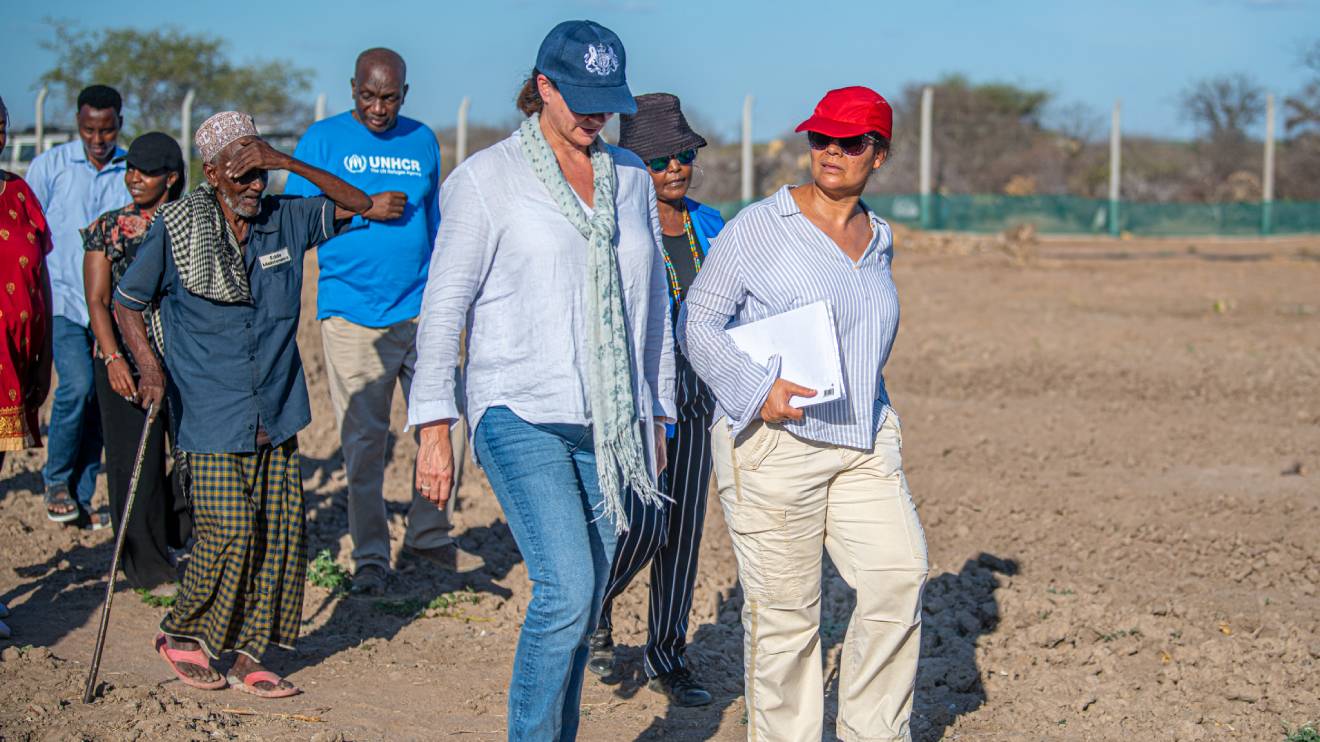

-1730399993.jpg)





